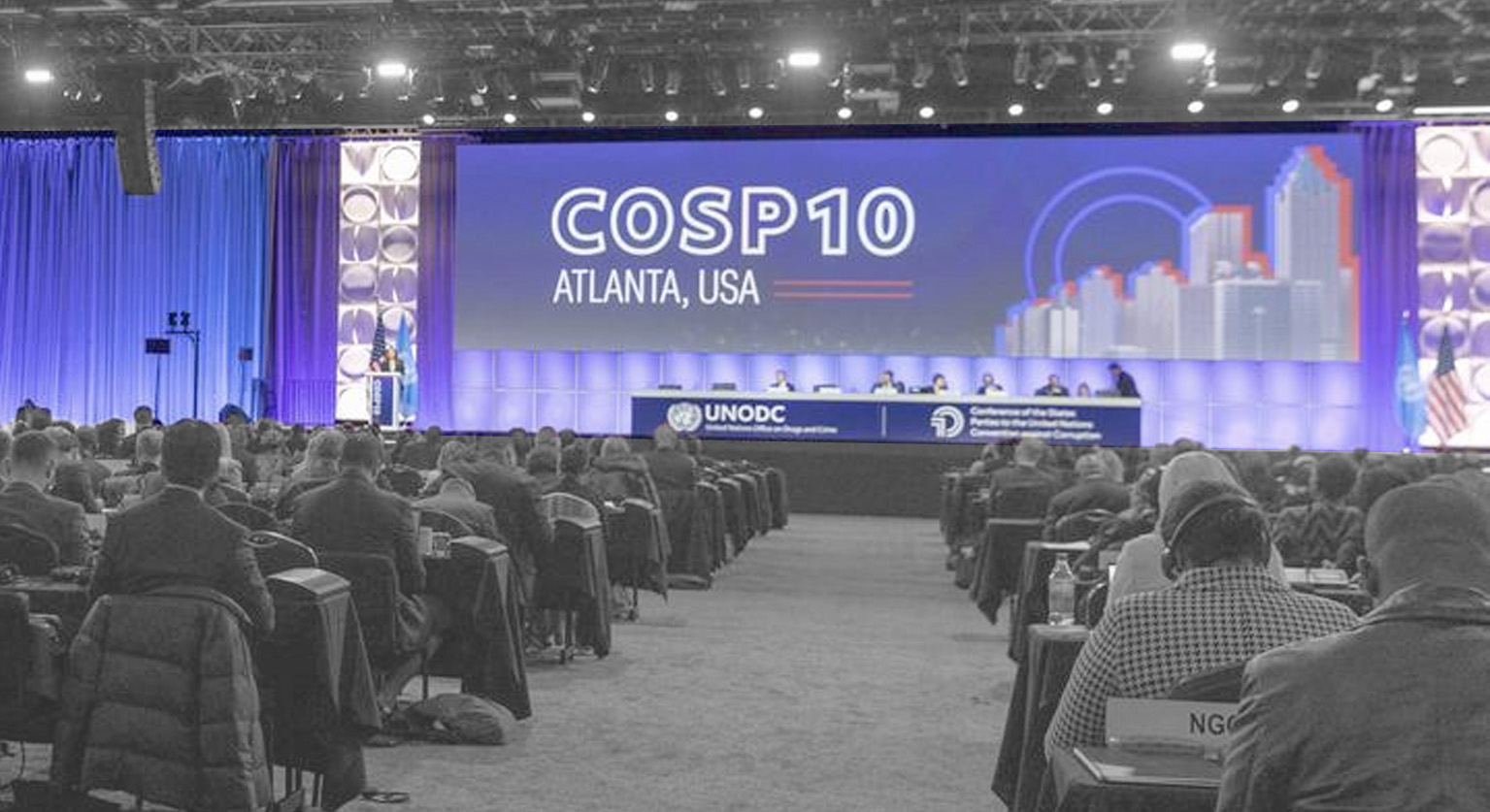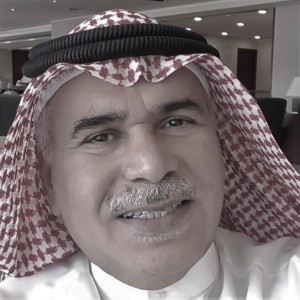
The 10th Conference of the States Parties to the UNCAC - Sharaf Mohsen al-Moussawi

The 10th Conference of the States Parties (CoSP10) to the UN Convention against Corruption (UNCAC) - Sharaf Mohsen al-Moussawi
Atlanta, Georgia, USA - 11-15 December 2023
The Conference of States Parties (CoSP) is considered the primary conference on combating corruption and promoting integrity and transparency at the international level. CoSP involves the 180 states that have ratified the United Nations Convention against Corruption (CAT). CoSP is held every two years in one of the member states and is attended by official delegations representing them. Some UN organizations, the World Bank, and other regional organizations participate as observers (they are not entitled to vote on decisions), and many civil society organizations (CSOs) from around the globe participate in most activities, except for those designated for governments. CSOs may also organize regional and other events or meetings during the conference, provided official approvals are obtained before the conference within a period determined in advance by the organizers. CSOs may also present interventions of no more than 4 minutes. The latest conference saw the attendance of about 400 international organizations and nearly as many through modern technology such as Zoom.
The United Nations Office on Drugs and Crime (UNODC) has been in charge of the CoSP secretariat since it was mandated by the UN Secretary-General through the decision of the first CoSP in 2006. CoSP was held for five days between 11 and 15 December 2023. The previous conference, CoSP9, was held in Sharm El-Sheikh in the Arab Republic of Egypt in December 2021, and the eighth conference took place in Abu Dhabi, UAE, in December 2019. CoSP11 is planned to be held in Doha, Qatar, in December 2025. The conference also holds official intersessional meetings. Before CoSP10, for example, a meeting was held in Vienna from 5 to 8 September 2022, in person and online, to prepare for the last conference, propose the agenda, and follow up on the General Secretariat's reports.
Conference Opening and Adopting the Agenda
According to Article 22 of the CoSP Rules of Procedure, a President, three Vice-Presidents, and a Rapporteur shall be elected from among the States Parties' representatives present at each session's opening. They continue to preside over the Conference’s work for the next two years until it is handed over to the next presidency at the next CoSP. The CoSP10 secretariat was elected after the conference's opening, headed by Egypt, before the beginning of the official main session. The only candidate (through a prior agreement between the countries) was the US representative, amid objections by Iran, Russia, and China. The Iranian representative considered that the person expected to assume the presidency has a negative role in imposing financial sanctions on Iran, Russia, and China. Therefore, they believe he will not deal with all member states impartially. The agenda included 75 official and subsidiary events during the days of the conference, in addition to other side events.
Objection to the Participation of CSOs
As in CoSP9 in Sharm El-Sheikh, Turkey objected to the participation of a group of CSOs because they were not established in Turkey and worked against it from European countries. Turkey later retracted its objection. Azerbaijan objected to the participation of 3 associations and accused them of having issued statements supporting Armenia. Azerbaijan considered it a national security issue, an illegal involvement, a flagrant violation of national laws, and a disdain of the Azerbaijani state.
Ultimately, CSO participation was decided by a favorable vote, which was considered a victory with an actual impact on conference attendance. The support was also due to the possibility of expanding the role of CSOs in anti-corruption efforts at the global level. Most countries that voted positively in favor of their attendance believed the objection was political.
However, 61 countries voted favorably, three objected, and 63 abstained. Thus, the decision allowed the participation of the censured CSOs. Azerbaijan, China, Russia, Iran, and Pakistan objected to the vote, considering it to violate the conference’s internal regulations calling for consensus and not voting. However, this objection was not taken into consideration.
Conference Decisions
Over five strenuous working days and side meetings of government working groups, the conference discussed 13 decision proposals and issued decisions related to the following topics:
1. Promoting integrity, accountability, and transparency in the fight against corruption.
2. Strengthening the implementation of the UNCAC in small island developing States.
3. Following up on compliance with the Marrakesh Declaration on the Prevention of Corruption.
4. Methodologies and indicators for measuring corruption and the effectiveness of anti-corruption frameworks.
5. Measures to address corruption involving organized criminal groups.
6. Enhancing the use of beneficial ownership information to enhance asset recovery.
7. Strengthen international cooperation in civil and administrative corruption-related procedures as stipulated in the UNCAC.
8. Protecting whistleblowers.
9. Promoting transparency and integrity in public procurement in support of the 2030 Agenda for Sustainable Development.
10. Addressing the social effects of corruption.
11. Following up on the commitment to the Sharm El Sheikh Declaration on strengthening international cooperation in preventing and combating corruption in times of emergency and responding to and recovering from crises.
12. Providing incentives to the private sector to adopt integrity procedures to prevent and combat corruption.
13. Agreeing on the location of CoSP to the United Nations Convention against Corruption (State of Qatar).
14. Extending the second session of the mechanism to review UNCAC implementation.
The CSO coalition for UNCAC played a positive role in convincing some countries to adopt some paragraphs to add to some crucial decisions, including disclosing the owners of national and international companies and their records to the public.
Holding a CSO Conference
The UNCAC coalition, in cooperation with the UNODC and the host country, organized a closed session for CSO participants on December 10, 2023. It was the first civil society forum ever held within CoSP, which reflected positively on the host country (the US). The participants included many CoSP attendees, the World Bank, and UNDP.
Many CSO observers were able to intervene, including the Bahrain Transparency Society, whose representative said the following during the discussion of the seventh item:
"Thank you, Mr. President. On behalf of the Bahrain Transparency Society, I congratulate you on your election as President of the tenth session. I also thank UNODC and other parties for the distinguished arrangements.
Dear country representatives, many official speakers stressed the importance of CSO participation in anti-corruption activities, especially in spreading a culture of integrity and transparency due to their close relationship with people. Thus, I support the recommendations of Transparency International and the UNCAC coalition. CSOs' work on monitoring the recovery of assets will have a promising role if they are given the appropriate space to work. Their role in monitoring elections is critical for the integrity of their results. Their participation in preparing national reports on countries’ implementation of UNCAC provisions is another vital area. Training youth and women on these principles must have a broad scope in their programs.
Twenty years after the UNCAC, it is necessary to pave the way for the work of these organizations. Therefore, our association hopes that your honorable conference will issue instructions to State Parties to support the efforts of CSOs and regional and international networks that bring together governments and civil society, providing material and moral support, especially for those working on combating corruption, enabling them to implement their vital programs and projects, and supporting their participation in the democratic transformation process and consolidating democratic principles.
Finally, I take this opportunity to add my voice to those calling for an immediate cessation of military operations in the Gaza Strip and Palestine, and we believe that the USA shall have a distinctive role in that issue."
Sharaf Mohsen al-Moussawi
